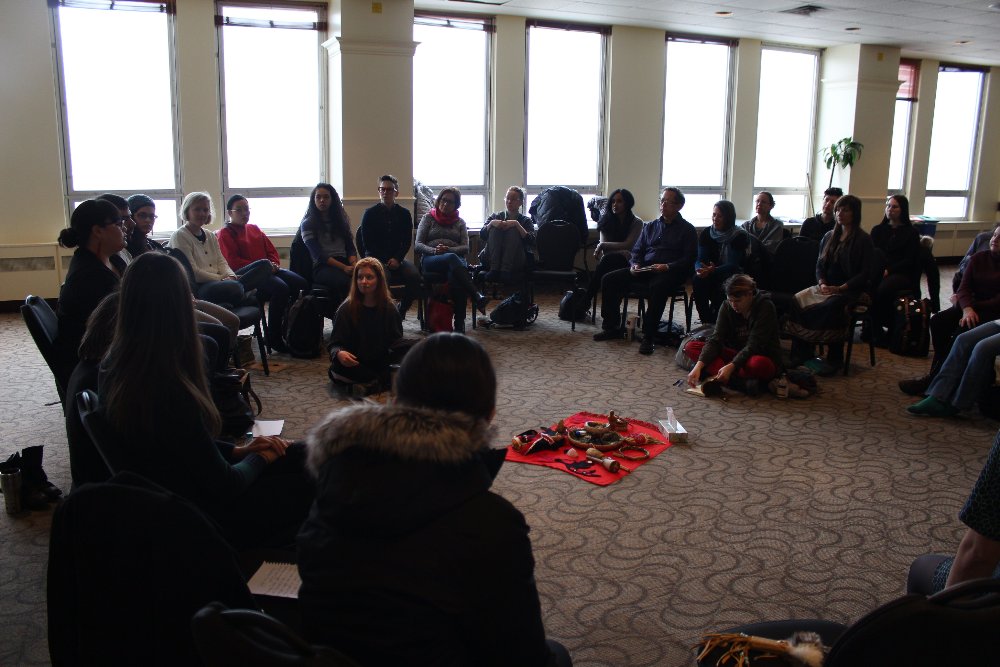A workshop was given to students and staff on the impact of racism towards indigenous people
It was a powerful afternoon on Feb. 1 during the Arts and Science Federation of Associations’ workshop on anti-racism and appropriation of indigenous cultures. As part of First Voices Week, the session was facilitated by Chantel Henderson and Vicky Boldo, who spoke about the impacts of racism in healthcare, education, justice, employment and housing. They shared their personal stories on how these issues affected their lives.
The event began with Boldo, a board member for the Native Women’s Shelter and the First People’s Justice Centre of Montreal, reciting “Greetings to the Natural World,” a prayer giving thanks for life and the Earth.
“We are all thankful to our Mother, the Earth, for she gives us all that we need for life. She supports our feet as we walk about upon her,” she recited. “It gives us joy that she continues to care for us as she has from the beginning of time. To our Mother, we send greetings and thanks. Now our minds are one.”
Henderson, who recently earned a graduate degree in community economic development from Concordia, spoke about her experience living in what was reported by Maclean’s magazine as the most racist city in Canada: Winnipeg.
She also discussed the KAIROS Blanket Exercise, where participants take on the roles of indigenous people in Canada. It was not demonstrated at the event, however.
“The blanket represents the lands, and the exercise shows the effects of colonization and how connected our people are to our land,” Henderson said. Standing on blankets, the participants walk through pre-contact, treaty-making, colonization and resistance. Facilitators, who play characters such as a narrator or European colonizers, direct the participants.
Henderson added how the exercise also demonstrates the lasting impact of colonization: racism, environmental destruction and loss of culture. “The reality now is that we only have 0.2 per cent of our land, and people wonder why our people are in poverty. It’s because our land was taken away from us and that was our livelihood.”
“We are people who have been discriminated against and have been the victims of cultural genocides for more than 500 years,” said Henderson. “I think people need to understand our story.”
The event finished with some participants forming a closed-session circle, where they shared their own personal experiences regarding racism and cultural baggage.




